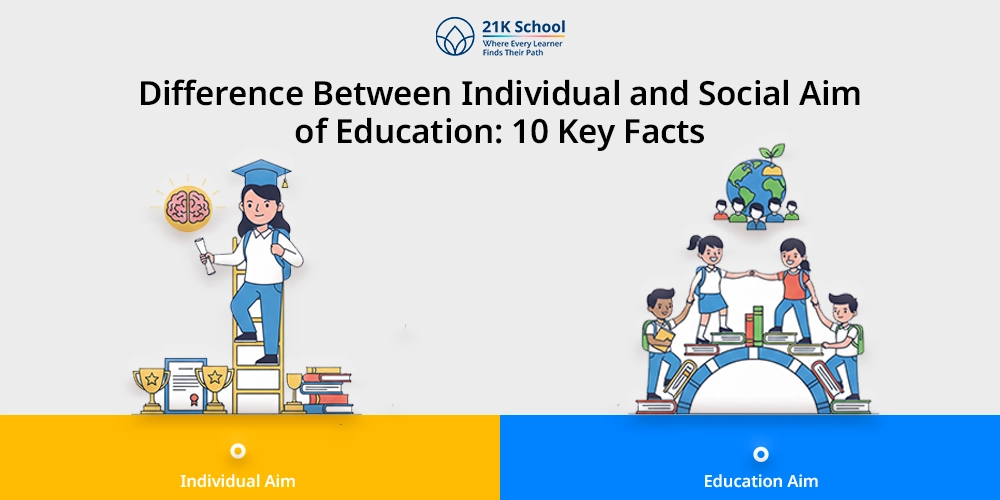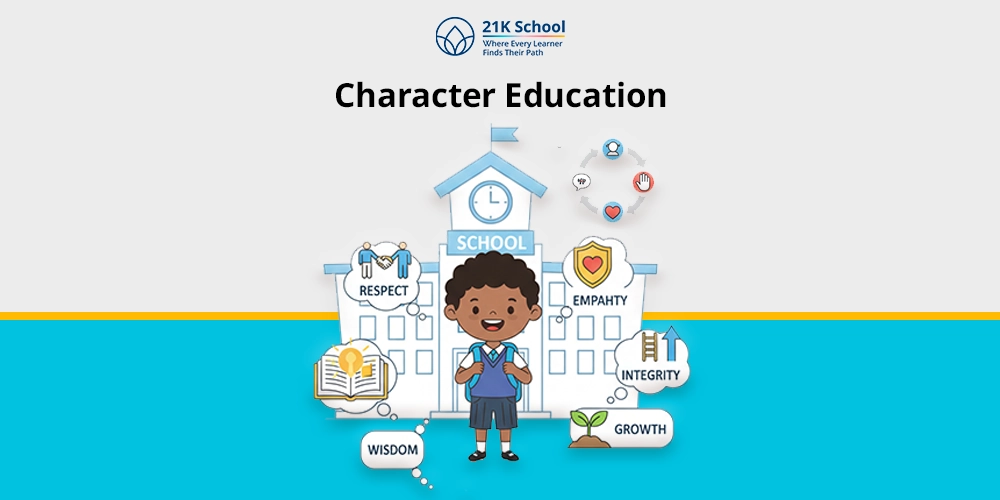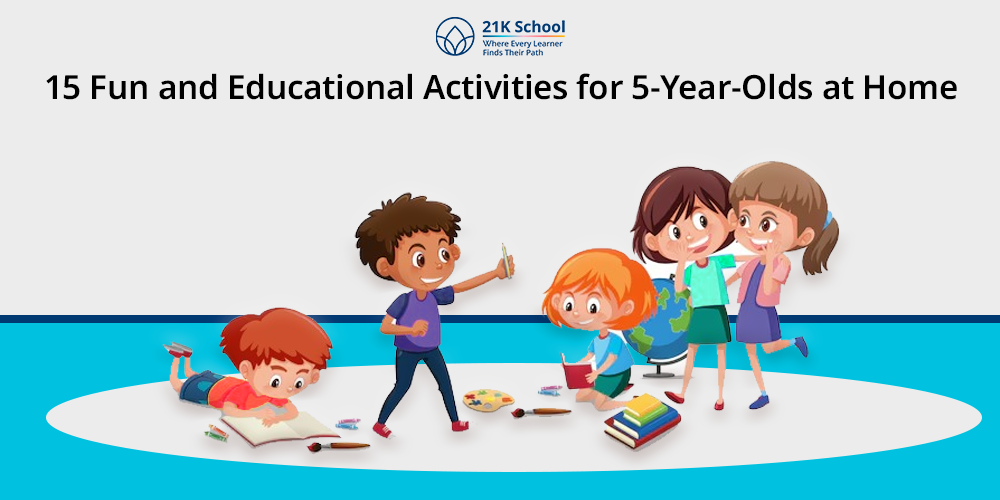
Do you know how educational activities help kids?
Kids learn through activities – especially those 5 to 6 years old. At age 5 children are developing important skills in literacy , numeracy, motor coordination and social-emotional growth and educational activities should support these in a balanced and appropriate way.
Fun learning activities are available for 5-year-olds in their everyday life to know about education , teaching and the learning process . And it will also help them in understanding broad concepts and educational approaches.
Games of memory, reading and writing, board games, puzzles, etc. Activities also help with problem-solving /communication, and teamwork in kids.
Contents
What are Educational Activities for 5-Year-Olds?
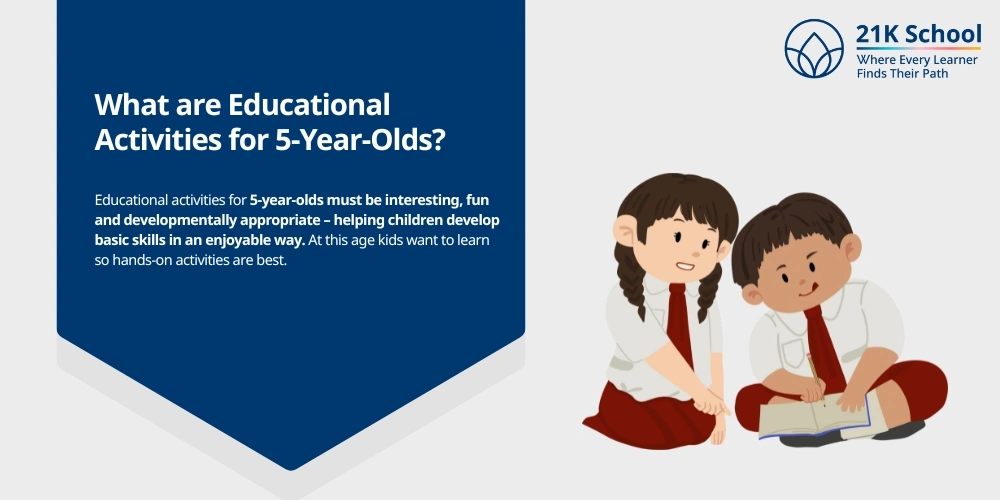
Educational activities for 5-year-olds must be interesting, fun and developmentally appropriate – helping children develop basic skills in an enjoyable way. At this age kids want to learn so hands-on activities are best.
Simple science experiments like growing a plant from a seed or mixing baking soda and vinegar may introduce some basic scientific ideas. Various fun learning activities like puzzles, matching games and memory cards help with problem-solving and cognitive development of children .
Social skills are learned in group and cooperative play – sharing, turning and settling disputes. At this age learning has to be combined with play so children can experience, discover and grow through experience.
Top 15 Educational Activities for 5 Year-Olds
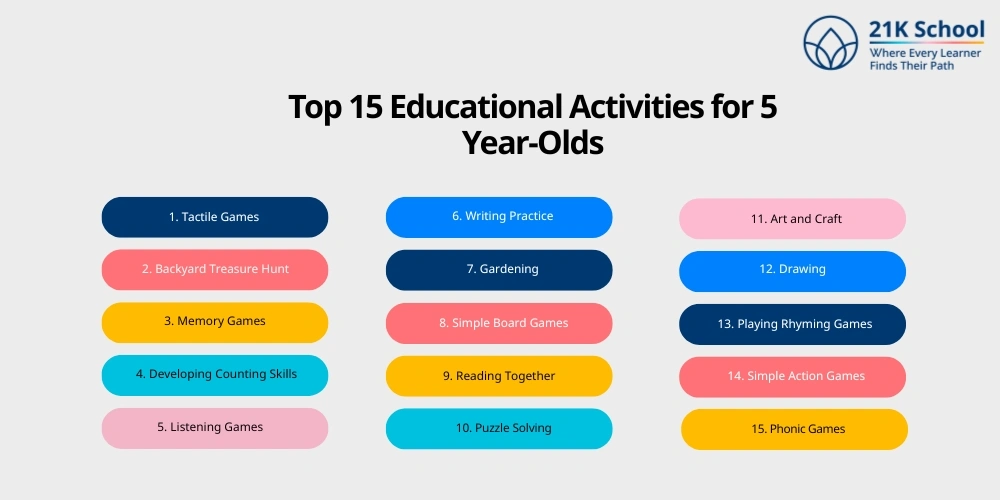
Activities for 5 yr old children are very important for holistic growth and holistic education . Memory games , gardening, writing/reading etc are all good activities. Top 15 educational activities for 5 years old are mentioned below.
1. Tactile Games
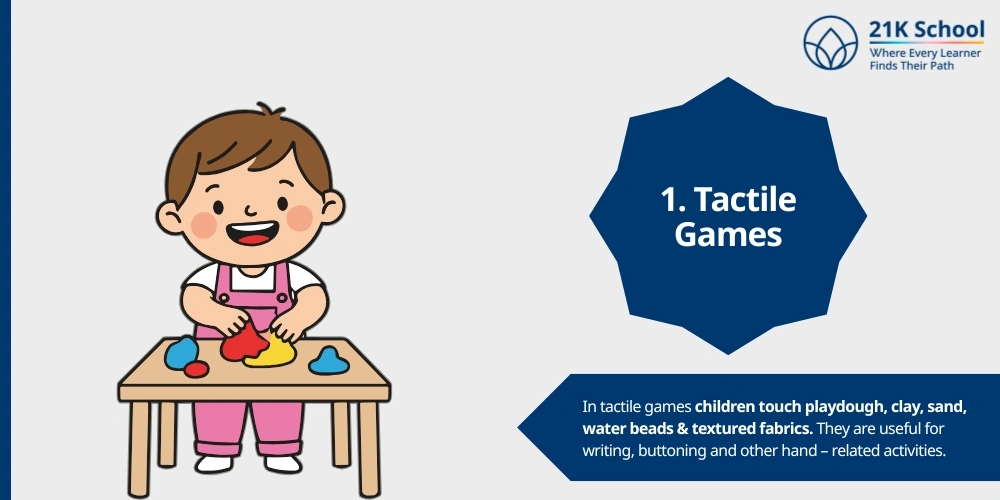
In tactile games children touch playdough, clay, sand, water beads & textured fabrics. They are useful for writing, buttoning and other hand – related activities.
Tactile play also promotes sensory integration – getting kids used to new sensations/textures. That kind of play calms and helps with cognitive learning through experimentation and exploration.
2. Backyard Treasure Hunt
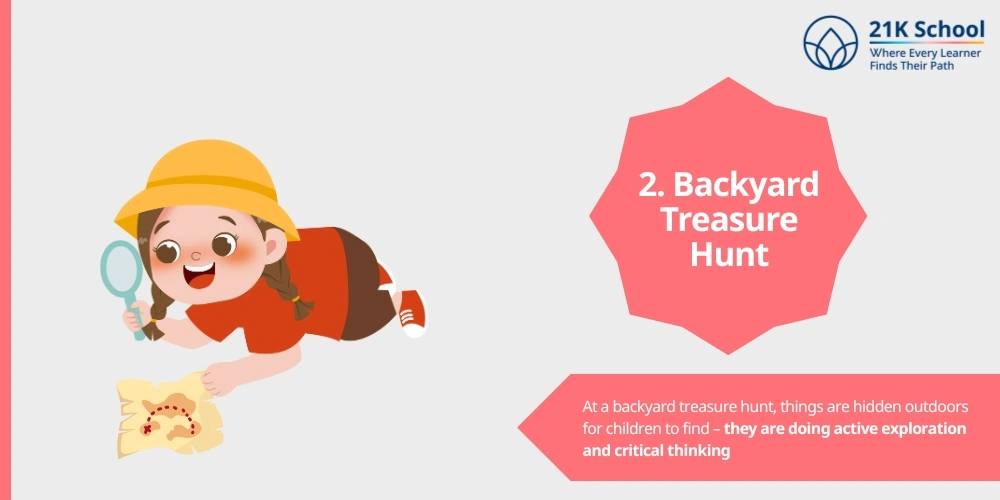
At a backyard treasure hunt, things are hidden outdoors for children to find – they are doing active exploration and critical thinking It is an observational activity – children look for things in the environment.
So that helps also with problem solving as they interpret the clues and where to search next. It’s a learning game and also an adventure game – a multi-skill activity.
3. Memory Games
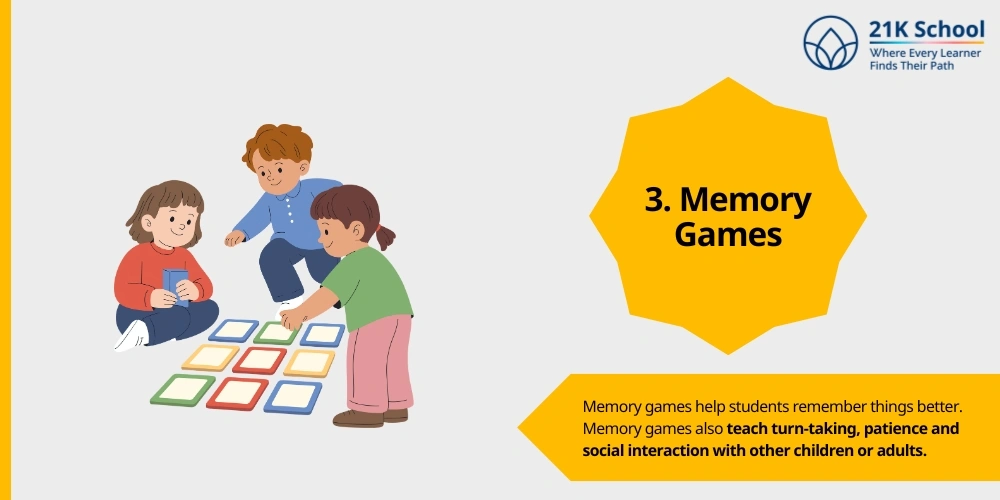
Memory games help students remember things better. Memory games also teach turn-taking, patience and social interaction with other children or adults.
Language development, problem-solving and academic readiness require good memory skills. They are adapted for difficulty so they are good for progressive learning and for keeping children occupied for long.
4. Developing Counting Skills
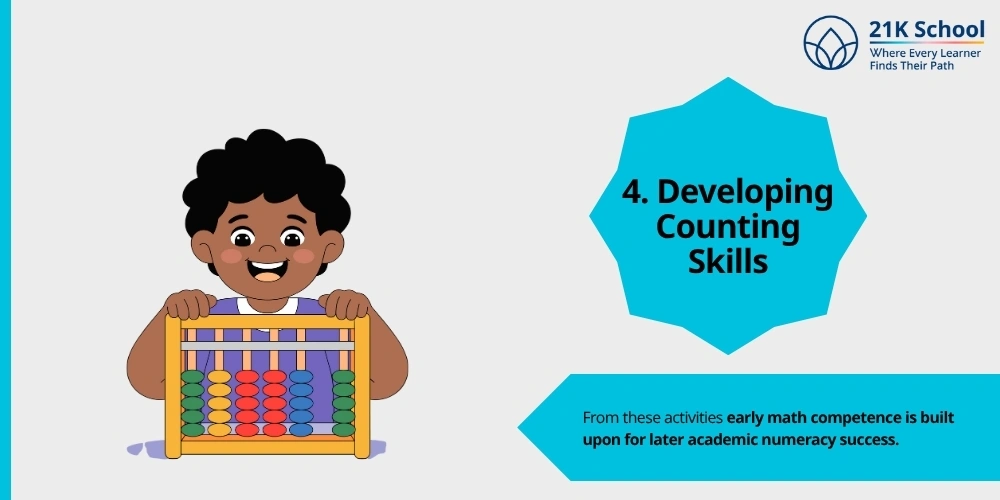
They learn how to count toys, fruits or steps. So children learn about numbers because they are associated with concrete things. Numbering games also teach sequencing and logic.
From these activities early math competence is built upon for later academic numeracy success. With this you learn one-to-one correspondence, number recognition and basic arithmetic addition and subtraction.
5. Listening Games
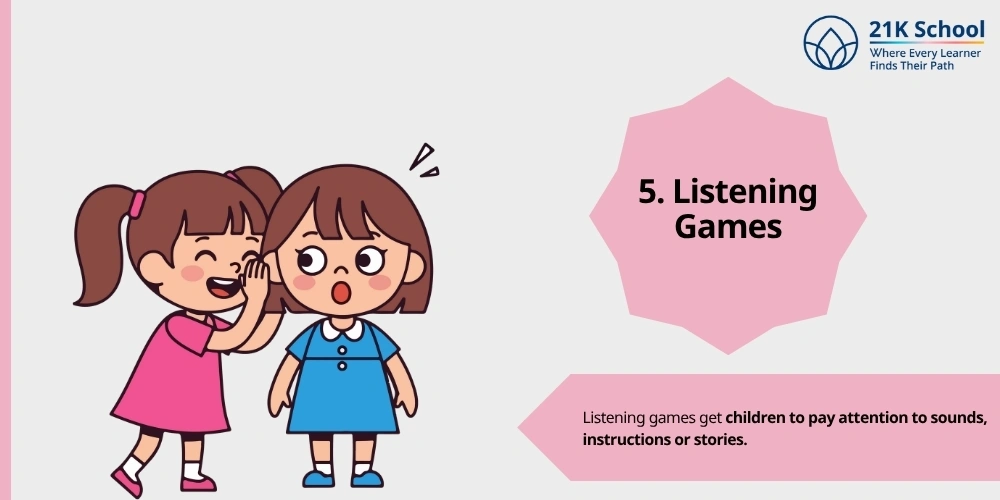
Listening games get children to pay attention to sounds, instructions or stories. Games like “Simon Says,” sound identification problems or storytelling teach auditory discrimination, comprehension and sustained attention.
Good listening skills are very important in schools for communication, following directions and learning new information. They also help with social-emotional learning by instructing kids to listen to others.
6. Writing Practice
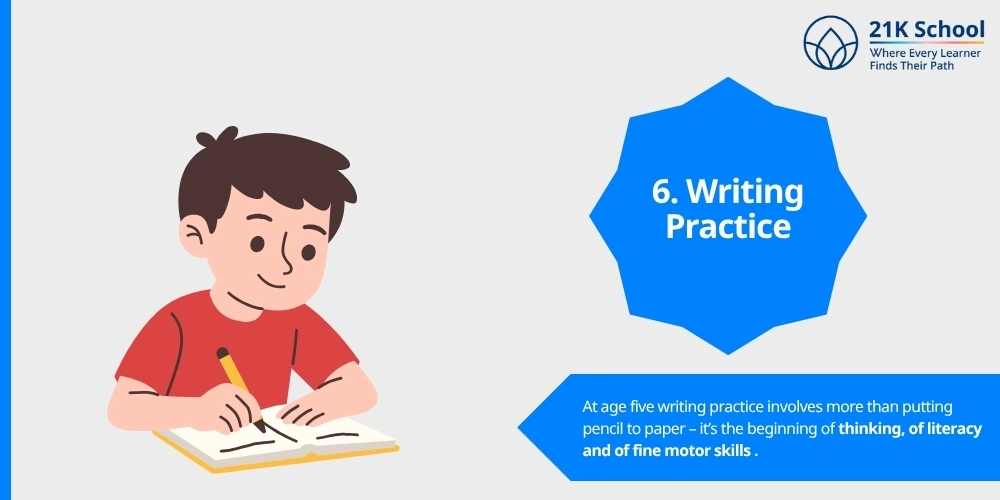
At age five writing practice involves more than putting pencil to paper – it’s the beginning of thinking, of literacy and of fine motor skills . Children learn to hold writing tools correctly, form letters, copy words and write sentences.
That encourages brain growth, hand-eye coordination & communication skills . Letter tracing, name writing or drawing labels – writing is all about reading and learning.
7. Gardening
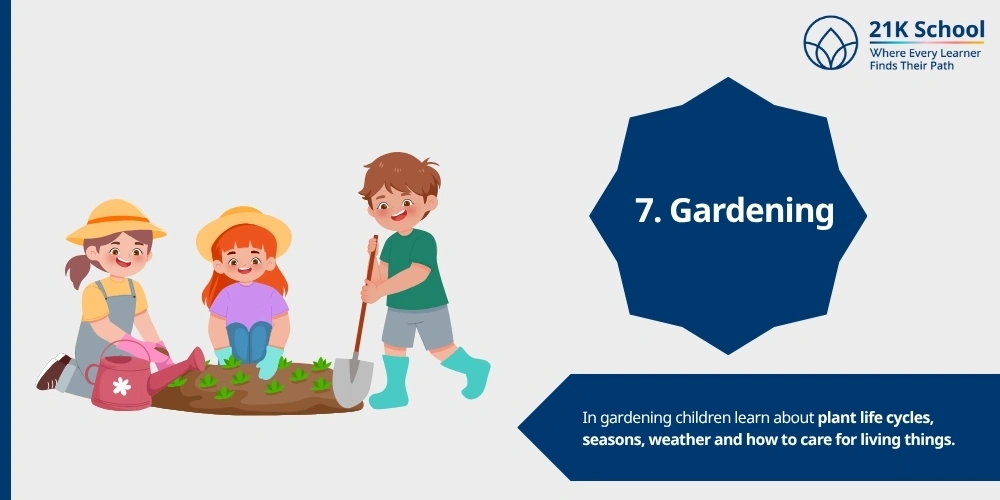
In gardening children learn about plant life cycles, seasons, weather and how to care for living things.
Soil, flowers and insects teach responsibility in watering and preparing plants for growth as well as sensory development. It also helps with health & mindfulness .
8. Simple Board Games
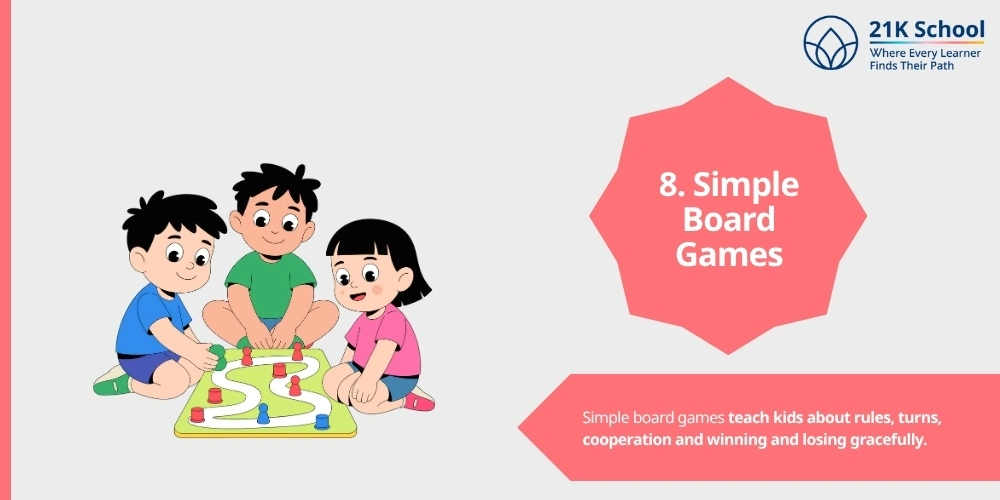
Simple board games teach kids about rules, turns, cooperation and winning and losing gracefully.
Those games usually involve counting, matching, color recognition, memory, strategy for brain development. They give structure to social interactions and may improve focus, attention span and early maths skills.
9. Reading Together
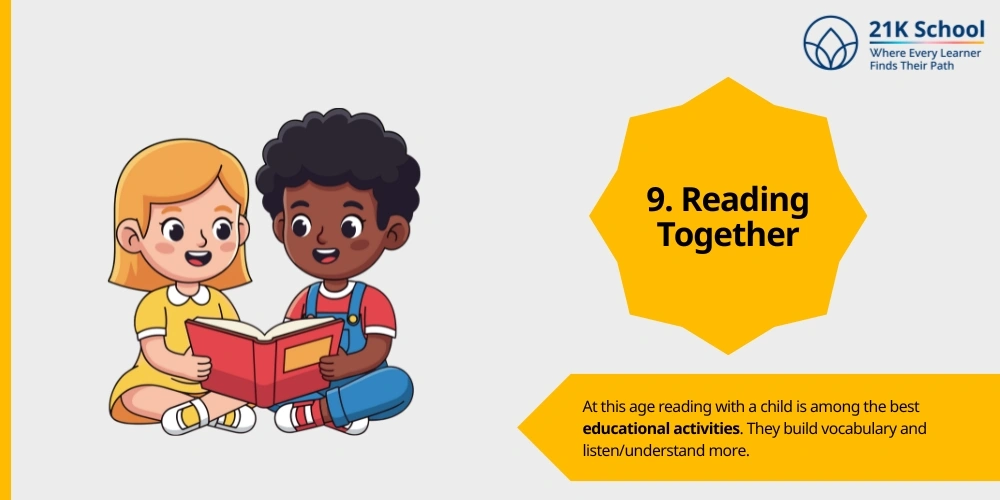
At this age reading with a child is among the best educational activities . They build vocabulary and listen/understand more. Early reading habits also teach children about narrative structure, order and emotions.
This helps with collaborative learning between them. Questions, pictures, characters – they make early literacy fun.
10. Puzzle Solving
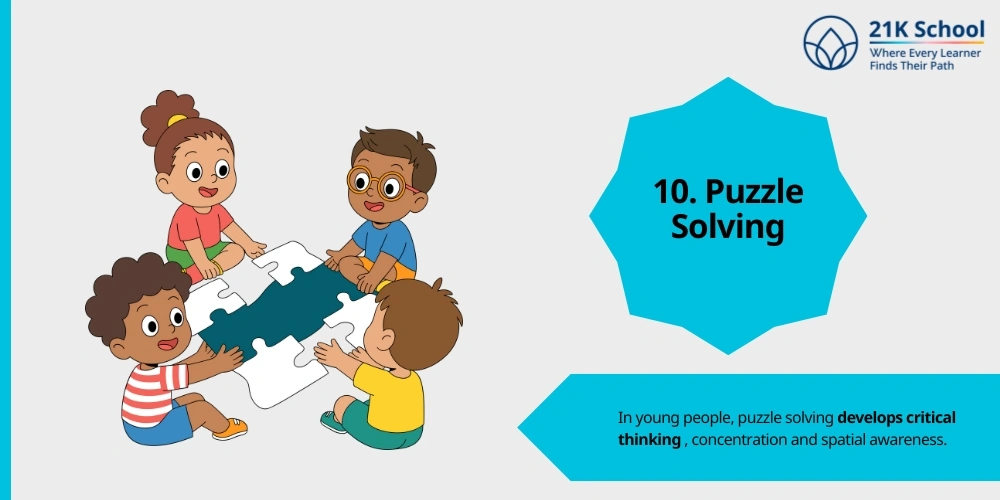
In young people, puzzle solving develops critical thinking , concentration and spatial awareness. That’s how they learn to approach problems and patterns and solutions with fun!
Puzzles also give the child satisfaction of completing a task on his own or with little help.
11. Art and Craft
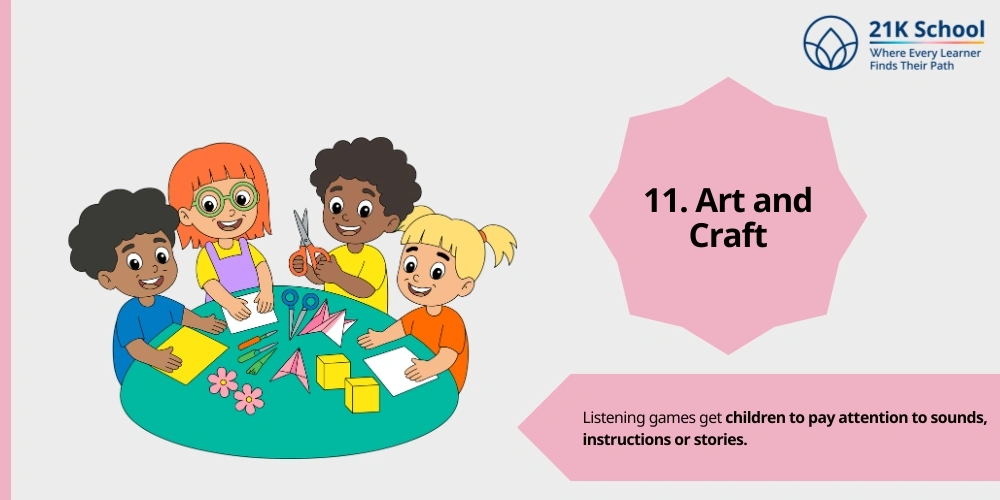
Art and craft help 5-year-olds make textures, colors and materials and develop fine motor skills. Kids develop imagination with Art and Craft.
They also help children express themselves visually. Art & Craft make ideas fun – things like shapes & sizes & spatial relationships.
12. Drawing
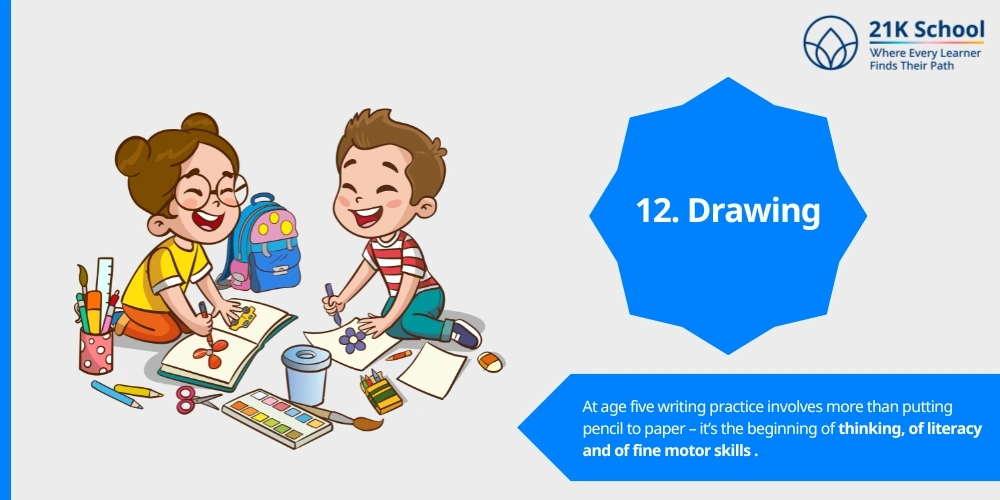
Drawing lets children express themselves visually and emotionally – they process thoughts and feelings before they can say them out loud. They help you with hand coordination, pencil control and creative thinking .
Also, drawing helps with observation – especially when kids try to copy something they see or imagine in a story scene.
13. Playing Rhyming Games
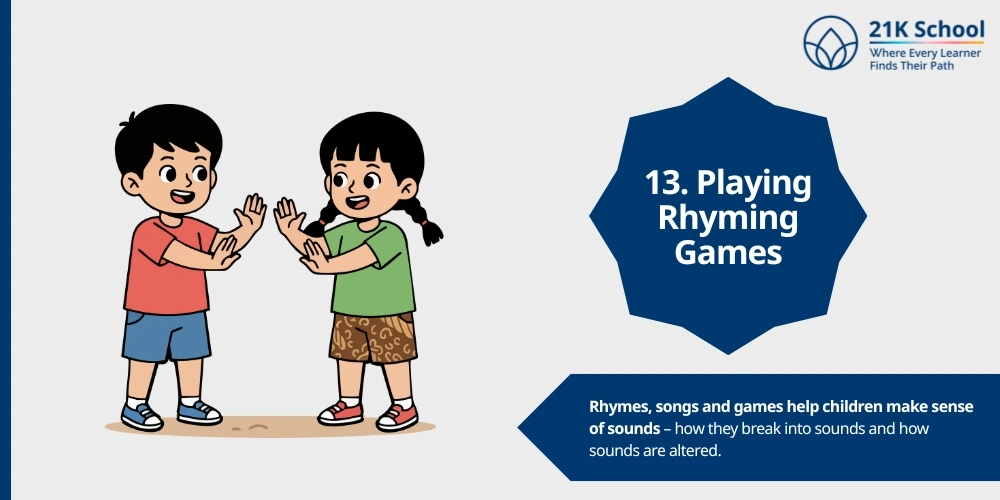
Rhyming games help develop phonological awareness in young readers.
Rhymes, songs and games help children make sense of sounds – how they break into sounds and how sounds are altered. They help with memory, listening and speech development.
14. Simple Action Games
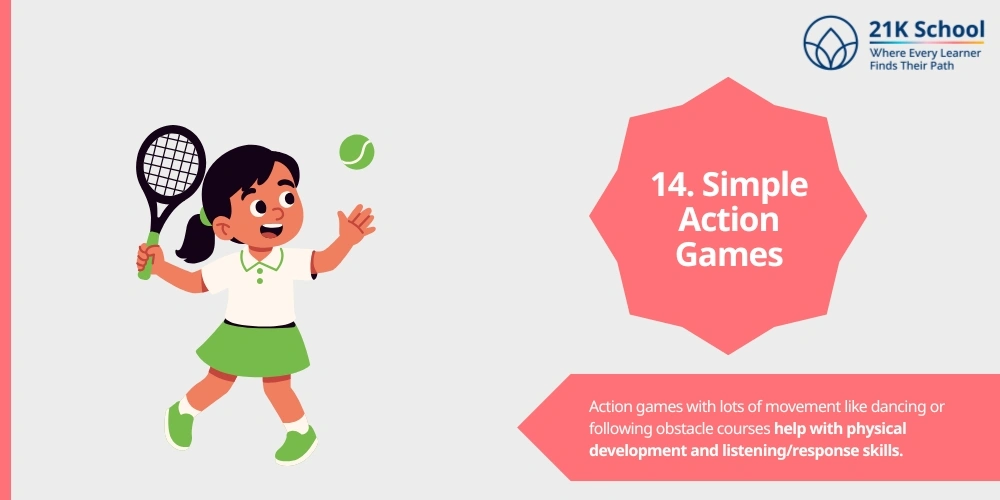
Action games with lots of movement like dancing or following obstacle courses help with physical development and listening/response skills. They improve coordination, balance, rhythm, body awareness and teach children to listen to instructions, work in teams, and release energy.
You learn with your whole body – which is very important for early childhood when movement and learning go together.
15. Phonic Games
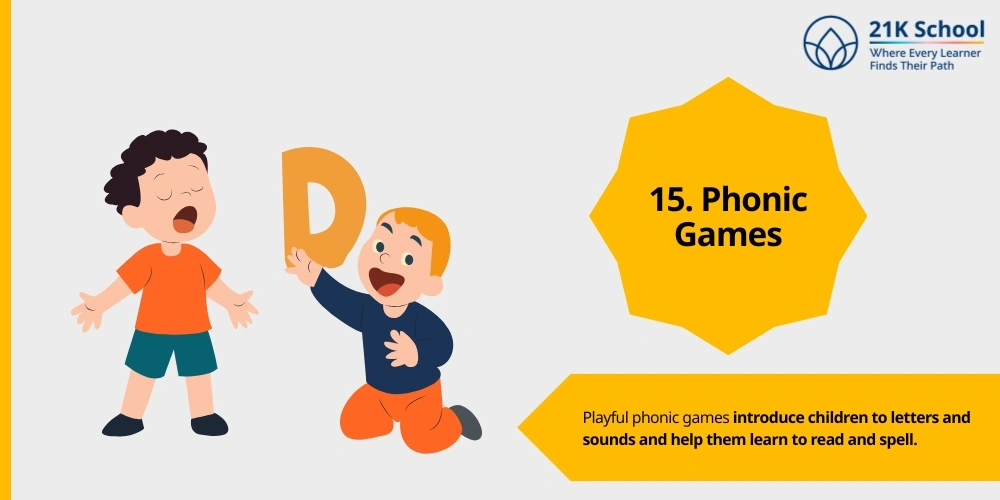
Playful phonic games introduce children to letters and sounds and help them learn to read and spell. These may be games of putting letters to pictures, of finding beginning or ending sounds or of blending sounds to form words.
Turning phonics into an activity helps children remember it and enjoy learning it. It helps you hear, speak and decode new words.
Final Thought
Educational pursuits are really important for five-year old children. At this age kids are naturally curious. Fun and important activities help them acquire abilities in reading, mathematics, social skills and problem-solving interaction.
Puzzles, board games, reading, drawing, outdoor play all help with learning, physical, cognitive and emotional development. They stimulate creativity, communication and fine and gross motor skills
And well planned educational activities make learning fun and rewarding for young minds

